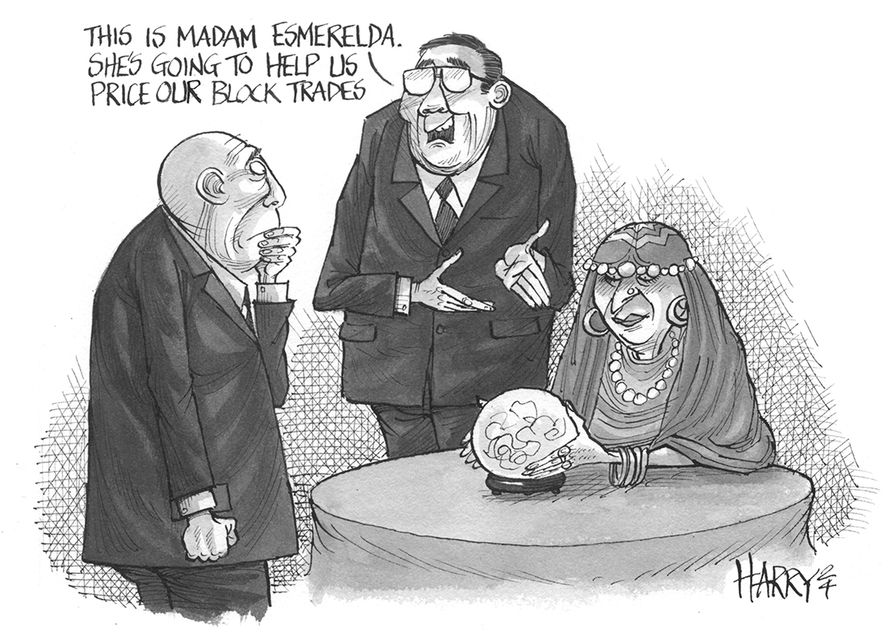Proposed stricter disclosure rules on sell-downs by insiders may trigger block activity in South Korea in the near term, but make such transactions more difficult in the long term.
Two months after the country's National Assembly passed an amendment to the Capital Markets and Financial Investment Business Act governing insider sell-downs, the Financial Services Commission on February 28 proposed a further amendment to exempt certain investors such as collective investment vehicles, banks, insurance companies and venture capital firms from the new requirements.
The regulator also for the first time set a clear timetable of the implementation of the rules, with the revised proposal up for public comment until April 11 before taking effect from July 24.
The proposed rules, first put forward in September 2022, require insiders such as major shareholders (defined as those owning 10% or more of outstanding shares) and executives who plan to sell or buy their companies' shares to disclose the purpose, price and volume of the transactions at least 30 days in advance.
The rules aim at protecting the interests of retail investors, who have been complaining that large-scale share sales by insiders such as board members of listed companies have caused abrupt falls in share prices.
When it first proposed the rule change, the FSC said that its analysis of 274 cases of unfair transactions over a five-year period (2017–21) had revealed that the most common factor was the use of undisclosed material information, which occurred in 119 cases, or 43.4%.
Disclosing planned disposals ahead of time will ensure all investors have the same information and give retail investors time to react.
Rushing out
Analysts and bankers expect that some insiders will rush to sell shares before the new rules come into effect.
“The confirmation of this timeline suggests a high likelihood that a significant number of block deals will occur before July,” said analyst Sanghyun Park at Clepsydra Capital, who publishes on research portal Smartkarma.
“The rules are strict, especially the fact that they require insiders to disclose the price. Although there is a 30% buffer in deal size, once you disclose a price, that will likely become the cap of the share prices before the deal happens,” said a ECM banker.
“To avoid all these uncertainties, some insiders may well just sell the shares before July,” said the banker.
The proposed rules would allow a 30% upward or downward adjustment from the originally disclosed deal size. The sellers can also withdraw the sale plans under certain conditions including extreme market volatility.
The rules are exacting compared to those in other countries. Taiwan requires insiders to disclose planned share sales three days ahead while China’s A-share regulations require 15 days. In both markets, vendors only need to disclose the number of shares but not the sale prices.
However, Korean law firm Jipyong said that although it could be argued that the amendment will overly restrict insider rights, the exemptions mitigate such concerns. By promoting transparency and predictability of insiders’ trades, the changes will strengthen investor protection and deter illicit and unfair transactions while reducing market volatility, Jipyong wrote in a note in February.
Only deals for more than 1% of a company’s issued shares or more than W5bn (US$3.8m) need to be disclosed.
Failing to comply with the rules will incur fines equal to 0.02% of the total market capitalisation of the company or W2bn, whichever is lower. Breaches could also lead to prison sentences of a maximum one year.
Value up
Some bankers doubt whether there will be a lot of insider sell-downs since financial investors are exempted from the rules.
“Blocks from non-financial investors in Korea normally come from listed companies that hold each other’s shares via cross-shareholding structures,” said another ECM banker.
Last month the FSC outlined the "corporate value-up programme", a set of guidelines that aims to help listed companies improve their valuations.
“The recent value-up programme introduced by the Korean government encourages companies to unwind such structures to improve corporate governance, but we wonder whether the family-controlled conglomerates will take it seriously,” the banker said.
Despite the challenges, the value-up theme has boosted financial stocks and driven several sell-downs in the past two weeks.
Heavy buying has been seen in financial stocks lately as investors expect Korean lenders to take measures to improve shareholder returns, including raising dividends and improving efficiency.
The strong run-up in share prices has prompted shareholders to cash in their stakes, with private equity firm EQT raising W415.6bn from a block in Shinhan Financial Group on Wednesday and IMM Private Equity sealing a W180.5bn share sale in Woori Financial Group on February 29.






